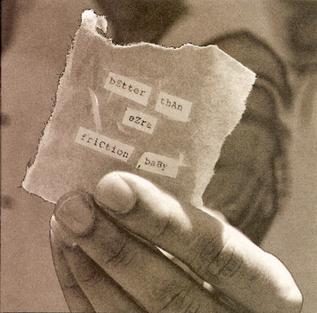
Friction, Baby is the third studio album by Better Than Ezra, released in 1996.

Good God's Urge is the second and final studio album by American alternative rock band Porno for Pyros. It was released in 1996 on Warner Bros. It was the band's first album to feature bass guitarist Mike Watt, who assisted the band in finishing the album after Martyn LeNoble left before all his bass tracks had been completed. There were three singles released from the album.
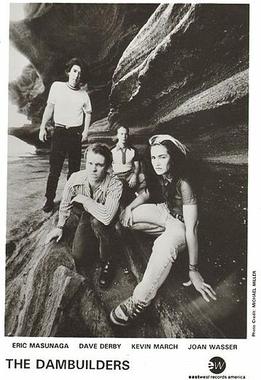
The Dambuilders was an indie rock band that began in Honolulu, Hawaii, USA, in 1989 and later relocated to Boston. They released seven LPs and a number of EPs before breaking up in 1998. Members have gone on with other musical projects, including the band's violinist/vocalist, Joan Wasser, as Joan as Police Woman. Kevin March also became well known in indie circles as the drummer of the band Guided by Voices, which he joined in 2002. Dave Derby is the leader and main songwriter of the New York City-based collective of artists known as Gramercy Arms, which has included collaborations with both Wasser and March.

Dirtdish is the sole studio album by English-based industrial act Wiseblood. It was released in 1986 by K.422/Some Bizzare. It was re-released on CD in 1995 by Thirsty Ear. The CD release of Dirtdish is Some Bizzare #WISE 3CD.

Joan Wasser is an American musician, singer-songwriter and producer who releases music as Joan As Police Woman. She began her career playing violin with the Dambuilders and played with Black Beetle, Antony and the Johnsons, and Those Bastard Souls. Since 2004 she has released her solo material as Joan As Police Woman. She has released five regular studio albums, one EP, a number of singles and two albums of cover songs. Throughout her career, she has regularly collaborated with other artists as a writer, performer and arranger.
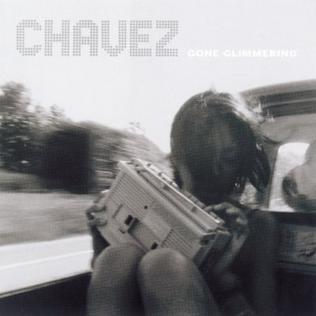
Gone Glimmering is the debut studio album of American indie rock band Chavez. It was released via Matador Records on May 23, 1995. The album was recorded over weekends in December 1994 and January 1995 at various locations with various producers/engineers.
Those Bastard Souls were an American independent rock band formed in 1995 as a solo side project by David Shouse of The Grifters. The name, somewhat of a nod to These Immortal Souls, was one that David Shouse coined as a replacement for A Band Called Bud, the original name of the Grifters. Shouse liked the name and held onto it, imagining a rotating roster of transient "bastard musicians" that would comprise a musical project that he might lead sometime in the future.

Wide Swing Tremolo is the third studio album by alternative country band Son Volt. It was released in 1998 on Warner Bros. Records.

F-Punk is a studio album by Mick Jones' post-Clash band Big Audio Dynamite, released in 1995. It was the first album to be released under the name of Big Audio Dynamite since 1989's Megatop Phoenix. The title is a pun on the funk group P-Funk, and is supposed to imply "Fuck punk." The album cover lettering takes influence from London Calling, one of Mick Jones' albums with The Clash, which in turn was a copy of Elvis Presley's debut album.
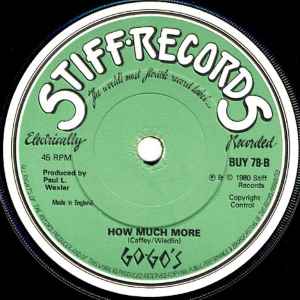
"How Much More" is a song written by Charlotte Caffey and Jane Wiedlin that was first released as part of the Go-Go's debut single along with "We Got the Beat" in 1980. A re-recorded version was released on their 1981 debut album Beauty and the Beat.
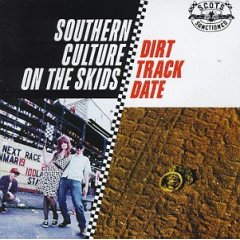
Dirt Track Date is an album by Southern Culture on the Skids, released in 1995. It was the band's first album for DGC Records. The band attracted some attention with the release of the song "Camel Walk".
Dave Derby is an American songwriter, recording artist, producer, and composer who was born in Honolulu, Hawaii and now resides in New York City.
Smile was an American rock band.
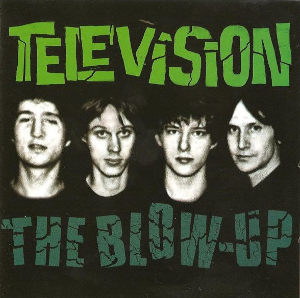
The Blow-Up is a live album by the American band Television, released as The Blow Up on cassette in 1982. It was reissued in 1990 and again in 1999. The songs first appeared on a bootleg titled Arrow.

Interstate is the fifth album by American post-rock and instrumental rock band Pell Mell, released in 1995. After issuing Flow in 1991, the band members wrote new material separately, sending each other ideas, until more concrete ideas were becoming formed, leading to the band recording Interstate between two studios in 1993 and 1994. Defined by a breezy, wide-open sound, Interstate features sparse, rhythmic guitar riffs, organ playing, drums and thematic instrumentation, in addition to a distinctive compositional style that has been compared to "the dynamics of a good conversation" by one critic. Additionally, the album has been considered a post-rock album and critics have noticed its display of krautrock influences.

Against the Stars is the sixth and final studio album by Boston-based indie rock band the Dambuilders, and their third for a major label. It was released on July 29, 1997 on East West and Elektra Records.

Rope-a-Dope is an album by the American indie rock band Antietam, released in 1994. It is named for the boxing technique. The band supported the album with a North American tour.
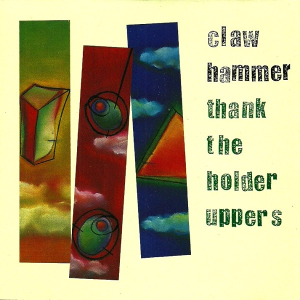
Thank the Holder Uppers is an album by the American band Claw Hammer. The band's first major label album, it was released in 1995 via Interscope Records. Claw Hammer supported the album with a North American tour.
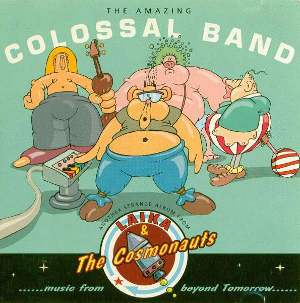
The Amazing Colossal Band is an album by the Finnish band Laika & the Cosmonauts, released in 1995. It was one of many instrumental rock albums released in 1995, part of a mid-1990s trend that encompassed lounge, surf, and space rock styles.
Encendedor is an album by the American band the Dambuilders, released in 1994. Its title comes from the Spanish word for cigarette lighter. The band supported the album with a North American tour and an appearance on Late Night with Conan O'Brien. "Smell" was released as a single, with the narrative of the accompanying music video based on the Chappaquiddick incident. Another single, "Shrine", was a modest Modern Rock chart success. The album was nominated for a Boston Music Award for "Debut Album of the Year".
















